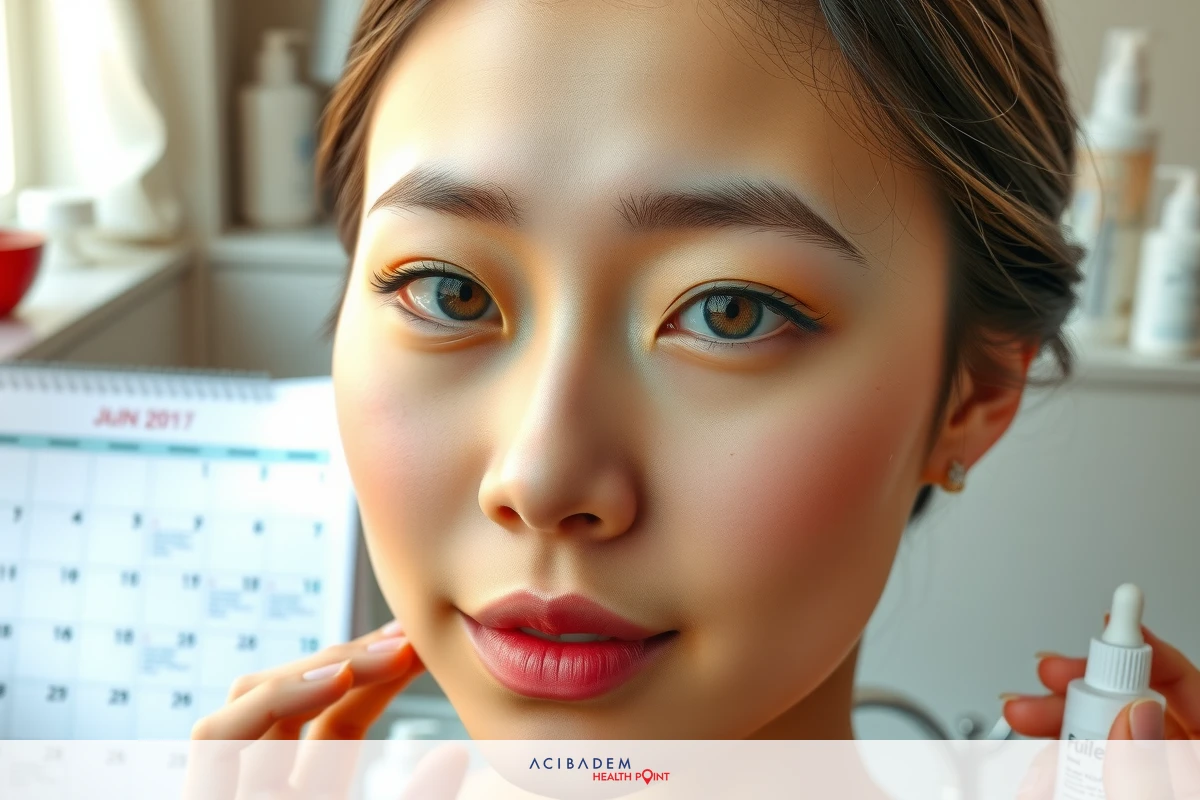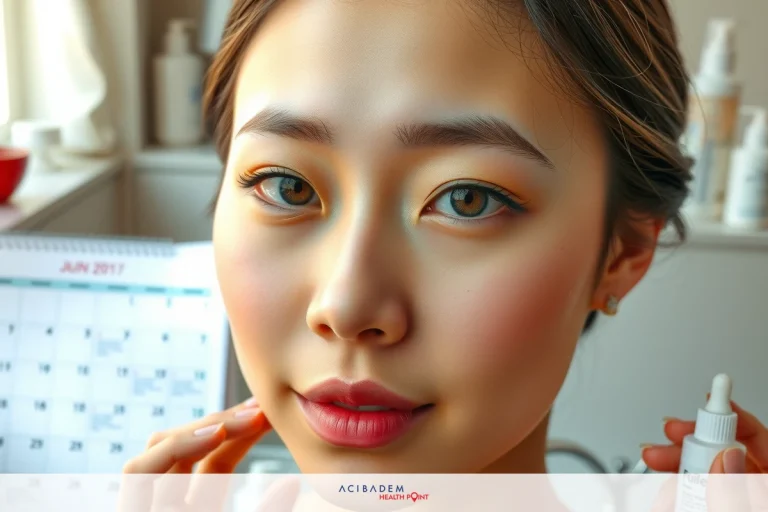How to Keep Rosacea From Turning Into Rhinoplasty
How to Keep Rosacea From Turning Into Rhinoplasty Rosacea, a condition marked by facial redness and sometimes pimples, has potential implications that extend beyond the surface. If not managed effectively, this persistent skin disorder can lead to changes in the nose’s appearance—a phenomenon often resolved through rhinoplasty.
Understanding rosacea—its causes, symptoms and triggers—is essential for those seeking effective management strategies. This knowledge aids in identifying appropriate skincare routines that minimize flare-ups and maintain overall skin health.
Recognizing various treatment options is equally vital. These treatments control rosacea effectively, curtailing its progression towards more severe conditions requiring invasive solutions like rhinoplasty.
Understanding Rosacea
Rosacea is a complex skin condition with causes that are multifaceted and not entirely understood. However, researchers have identified some common factors contributing to this persistent facial redness. These include aspects like hereditary predisposition, environmental triggers, and even certain microscopic mites commonly found on the human skin—Demodex folliculorum. By comprehending these causes, individuals affected can better manage their rosacea symptoms.
Symptoms of rosacea often include more than just facial redness. Many people experience small, pus-filled bumps or pimples; visible blood vessels may also appear on the face. In severe cases, rhinophyma (thickening of the skin on the nose) can occur—an unwanted development leading many towards considering rhinoplasty for relief. Awareness about these symptoms plays an instrumental role in early detection and treatment initiation—thus preventing further complications.
Triggers for rosacea vary from person to person but understanding individual triggers is a crucial part of rosacea management. Common elements such as sun exposure, spicy foods, alcohol consumption or stress often aggravate this condition causing flare- ups in susceptible individuals. Identifying personal triggers helps to implement effective skincare regimens aimed at reducing flare-ups and keeping symptoms under control—a key step towards preventing progression to conditions necessitating procedures like rhinoplasty.
Skincare Tips for Rosacea Management
When dealing with rosacea, the right skincare routine can make a difference in managing symptoms and preventing progression to more severe conditions. It plays an instrumental role in overall skin health, helping individuals effectively control their rosacea.
- Gentle cleansing: Use a mild, non-abrasive cleanser to wash your face twice daily. Ensure that you rinse with lukewarm water as hot or cold temperature extremes can trigger flare-ups.
- Sun protection: Sun exposure often aggravates rosacea symptoms; hence it is crucial to wear broad-spectrum sunscreen of at least SPF 30 whenever outdoors.
- Moisturize regularly: Dryness can irritate the skin—making rosacea worse; therefore maintaining skin hydration through regular moisturizing is essential.
- Avoid known triggers: If spicy foods or alcohol consumption tend to worsenyour condition, try limiting these from your diet.
- Choose makeup carefully: Opt for products labeled non-comedogenic as theywon’t clog pores—a step towards preventing acne-like breakouts common inrosacea sufferers.

Close-up of a woman with makeup applied, focused on her eyes and lips. She has long eyelashes and red lipstick. Her skin is lightly tanned, which may be due to the sun or a tan product. - Consult a dermatologist before using new products: While trying any newproduct on your skin (be it cosmetics or skincare), ensure its compatibility with your sensitive skin by consulting a dermatologist.
Implementing these tips into everyday routines fosters better management of this persistent facial redness and aids in achieving healthier-looking skin—all while keeping rhinoplasty at bay!
How to Keep Rosacea From Turning Into Rhinoplasty: Effective Rosacea Treatments
Coping with rosacea involves more than just monitoring symptoms and tweaking skincare routines—it necessitates a comprehensive treatment plan. While there is no definitive cure, numerous treatments effectively control rosacea symptoms and prevent them from worsening. These include topical medications, oral antibiotics, laser therapies, or even lifestyle changes—all aimed at preventing progression towards severe skin alterations that could lead to invasive procedures like rhinoplasty.
Topical treatment forms the first line of defense in managing rosacea. Gels or creams containing metronidazole, ivermectin, azelaic acid or brimonidine are often prescribed by dermatologists based on individual needs. These medicated solutions reduce inflammation and redness while also treating acne-like breakouts—common manifestations of this persistent facial disorder. However, it’s important to note that while these may offer immediate relief from symptoms; long-term use under medical supervision is essential for sustained results.
Beyond topical solutions, oral medications form another cornerstone in the battle against rosacea. Dermatologists frequently prescribe low-dose doxycycline—a type of antibiotic—not for its bacteria-fighting properties but mainly due to its anti- inflammatory effects which can be beneficial in controlling flare-ups without causing antibiotic resistance over time. For stubborn cases resistant to other treatments or those showing ocular involvement (eye issues), isotretinoin—an oral retinoid—may be recommended albeit with careful monitoring due to potential side effects.
Laser therapy offers an alternative when medication alone doesn’t suffice particularly for visible blood vessels or severe redness unresponsive to other measures. Intense pulsed light therapy helps minimize flushing and reduces visibility of blood vessels significantly improving appearance without resorting to surgical interventions like rhinoplasty.
Regardless of chosen treatment approach—the objective remains constant: effective symptom management and prevention of disease progression—a key determinant in evading drastic steps like undergoing rhinoplasty.
How to Keep Rosacea From Turning Into Rhinoplasty
Frequently Asked Questions
What are some effective strategies for rosacea prevention?
Preventing rosacea flares involves understanding your triggers, which could be factors like sun exposure, spicy foods or stress. It's essential to maintain a skincare routine that includes gentle cleansing, regular moisturizing and consistent use of sunscreen. Consultation with dermatologists helps in formulating personalized skincare regimens.
Preventing rosacea flares involves understanding your triggers, which could be factors like sun exposure, spicy foods or stress. It's essential to maintain a skincare routine that includes gentle cleansing, regular moisturizing and consistent use of sunscreen. Consultation with dermatologists helps in formulating personalized skincare regimens.
Rhinoplasty is generally safe when performed by an experienced surgeon; however, like any surgical procedure it carries potential risks—these may include bleeding, infection or adverse reaction to anesthesia. It should only be considered when conservative management fails or the physical deformity impacts quality of life significantly.
How can I manage my rosacea effectively without resorting to surgery?
Effective management usually involves a combination of lifestyle changes and medical treatments such as topical medications or oral antibiotics. In some cases laser therapy might be necessary. Regular follow-ups with your dermatologist ensure optimal symptom control and prevent progression towards conditions needing surgical intervention like rhinoplasty.
Is the cost of treating Rosacea covered by insurance companies?
Coverage depends on individual policies and it's best to consult directly with your insurance provider about specifics related to rosacea treatment coverage.











